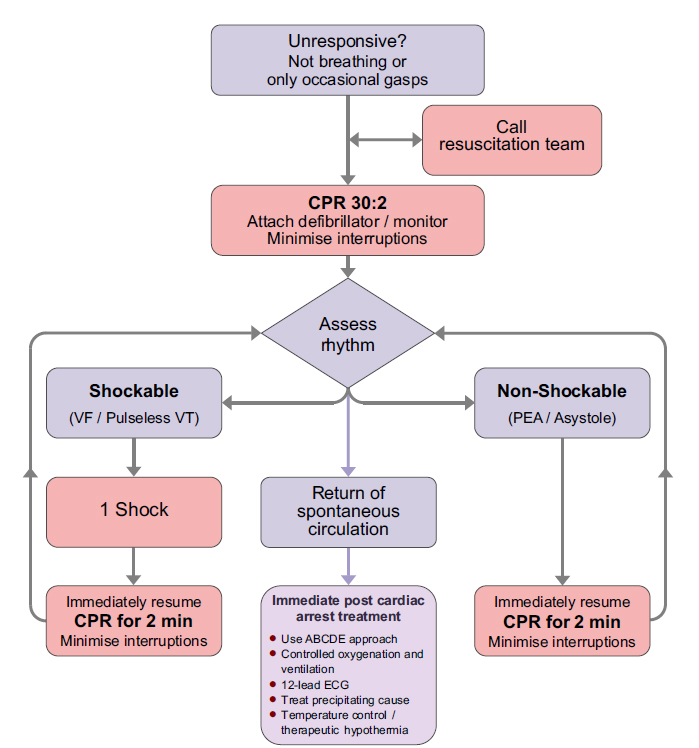
- Question two
When considering the treatment of VF/VT:

Feedback
That’s partly right. Have another go.
Feedback
That’s partly right.
Reduction of the pre and post shock pause can influence the likelihood of success, because interruptions longer than 5 seconds reduce the chance of a shock restoring a spontaneous circulation. If it was considered appropriate to start resuscitation, it is usually worthwhile continuing whilst VF persists.
Pulse checks should be performed only when organised electrical activity compatible with a pulse is seen. Once given, adrenaline should be repeated every 3-5 minutes, irrespective of cardiac arrest rhythm.
Feedback
That’s not right. Have another go.
Feedback
That’s not right.
Reduction of the pre and post shock pause can influence the likelihood of success, because interruptions longer than 5 seconds reduce the chance of a shock restoring a spontaneous circulation. If it was considered appropriate to start resuscitation, it is usually worthwhile continuing whilst VF persists.
Pulse checks should be performed only when organised electrical activity compatible with a pulse is seen. Once given, adrenaline should be repeated every 3-5 minutes, irrespective of cardiac arrest rhythm.
Feedback
That’s right.
Reduction of the pre and post shock pause can influence the likelihood of success, because interruptions longer than 5 seconds reduce the chance of a shock restoring a spontaneous circulation. If it was considered appropriate to start resuscitation, it is usually worthwhile continuing whilst VF persists.
Pulse checks should be performed only when organised electrical activity compatible with a pulse is seen. Once given, adrenaline should be repeated every 3-5 minutes, irrespective of cardiac arrest rhythm.
References
Algorithm: Adult Advanced Life Support Algorithm

